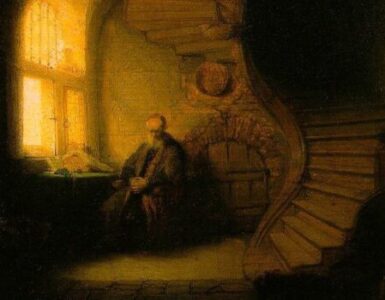In a letter to bishops accompanying his Motu Proprio Apostolic Letter Summorum Pontificum (2007), Pope Benedict XVI wrote that the Ordinary and Extraordinary Forms of the Roman Rite “can be mutually enriching.” Over fifteen years since Benedict allowed for a wider use of the 1962 Missal of John XXIII, the Church has gained a greater appreciation of how this “twofold use of one and the same rite” can lead to such mutual enrichment.
As paradoxical as it may seem, I propose that the greatest contribution the 1962 Missal of John XXIII offers the Roman Rite is that it makes it more charismatic. In short, whereas the “newer” Missal confines the Solemnity of Pentecost to a single day, the “older” Missal prolongs the celebration for an entire week. Just as we have an octave of Christmas and Easter, so we have—or should have—an octave of Pentecost. The older Missal can help the Church rediscover the power of the Holy Spirit through a more robust and extended liturgical celebration of Pentecost.
Gregory DiPippo offers a wonderful summary of the history of the Pentecost Octave and argues that “one of the best possible examples of the mutual enrichment of the two forms which the Holy Father spoke of in Summorum Pontificum would be restoration to the post-Conciliar liturgy of at least some of the major features which were eliminated from the Proper of the Seasons,” the “most prominent” of which is the “Octave of Pentecost.” Even though most practicing Catholics attend Mass only on Sunday, think of the message an eight-day celebration of the Holy Spirit would send to the Church and to the world!
In a rich and probing Encyclical Letter, Saint John Paul II contextualizes the Holy Spirit within man’s inner conflict between sin and sanctity. “Opposition to God,” he writes, “to a certain degree originates in the very fact of the radical difference of the world from God, that is to say in the world’s ‘visibility’ and ‘materiality’ in contrast to him who is ‘invisible’ and ‘absolute Spirit’; from the world’s essential and inevitable imperfection in contrast to him, the perfect being” (Dominum et Vivificantem, 55). This opposition plays out on an ethical plane since, as Saint Paul writes, “the desires of the flesh are against the Spirit and the desires of the Spirit are against the flesh” (Gal. 5:17). John Paul reminds us that it is the Holy Spirit’s mission to “convince the world” of sin (Jn. 16:8). Saint Paul provides a detailed list contrasting the “works of the flesh” (enmity, strife, jealousy, anger, selfishness, dissension, “party spirit,” envy) with the “fruit of the Spirit” (love, joy, peace, patience, kindness, goodness, faithfulness, gentleness, self-control) (cf. Gal. 5:16ff). These two lists give the “permanent dispositions” or “virtues and vices” that are “the fruit of submission to (in the first case) or of resistance to (in the second case) the saving action of the Holy Spirit.” Pope John Paul emphasizes the inevitability of that struggle in this world. We don’t seek it. Rather, it is inherent to our condition and to a fallen world. Saint Paul’s words “enable us to know and feel vividly the strength of the tension and struggle going on in man between openness to the action of the Holy Spirit and resistance and opposition to him, to his saving gift” (Dominum et Vivificantem, 55). “Who will win?” he asks. “The one who welcomes the gift” (Ibid).
If the octave of Pentecost were re-incorporated into the Novus Ordo, we would have ample room to welcome this gift. Liturgically, it would place the welcoming of the Holy Spirit on the same level as the welcoming of the Christ Child at Christmas and the welcoming of the Risen Lord at Easter. It is no coincidence that, just as we fast in preparation for Christmas and Easter, so the Church should fast in preparation for Pentecost. Matthew Plese explains the centrality of this fasting to the traditional Pentecost Vigil. Nothing could remind us more of the struggle between the “flesh” and the “spirit” indicated by Saint Paul and explained by Saint John Paul than a temporary denial of our bodily needs to receive God’s spiritual pledge of everlasting life.
Yet John Paul also presents a caveat. We don’t engage in this battle in isolation or merely for sake of our individual souls. The struggle taking place in the human heart “finds in every period of history and especially in the modern era its external dimension, which takes concrete form as the content of culture and civilization, as a philosophical system, an ideology, a program for action and for the shaping of human behavior” (Dominum et Vivificantem, 56), the clearest expression of which is “materialism,” the extreme systematization of which, in turn, is Marxism (Ibid). Thus, the world—let alone the Church—is in need of a longer celebration of Pentecost. One day is not enough. It remains to be seen if the “older” Missal will influence the “newer” enough to restore the Octave of Pentecost.
Interestingly, one step in this direction may have been Pope Francis’ introduction of the Memorial of the Blessed Virgin Mary, Mother of the Church, on the Monday after Easter. The decree instituting the Memorial teaches that Mary, “as a caring guide to the emerging Church…had already begun her mission in the Upper Room, praying with the Apostles while awaiting the coming of the Holy Spirit” (cf. Acts 1:14). The Catechism conjoins the mission of the Holy Spirit and that of God the Son precisely through Mary: “The Holy Spirit, ‘the Lord, the giver of Life,’ is sent to sanctify the womb of the Virgin Mary and divinely fecundate it, causing her to conceive the eternal Son of the Father in a humanity drawn from her own” (CCC 485). Thus, Mary is “the masterwork of the mission of the Son and the Spirit in the fullness of time” (CCC 721). It is through Mary that “the Holy Spirit begins to bring men, the objects of God’s merciful love, into communion with Christ” (CCC 725). Hence, rather than impeding the reinstitution of a Pentecost Octave, the Memorial of the Blessed Virgin Mary, Mother of the Church, could well enhance it, or, at the very least, the latter could be transposed to the Monday after the Octave.
It remains to be seen if and how the post-Vatican II Missal will evolve in the wake of Summorum Pontificum, but it is hard to think of a good reason not to reintroduce the Octave of Pentecost. Extending the celebration of Pentecost for a week would rightly remind us of our personal sins and the sinful systems of the world. But most of all, it would rekindle in us the “desires of the spirit,” the “exhortations echoing in the night of a new time of advent, at the end of which, like two thousand years ago, ‘every man will see the salvation of God’” (Dominum et Vivificantem, 56. Cf. Lk. 3:6 and Is. 40:5).
Photo by John Canada on Unsplash










